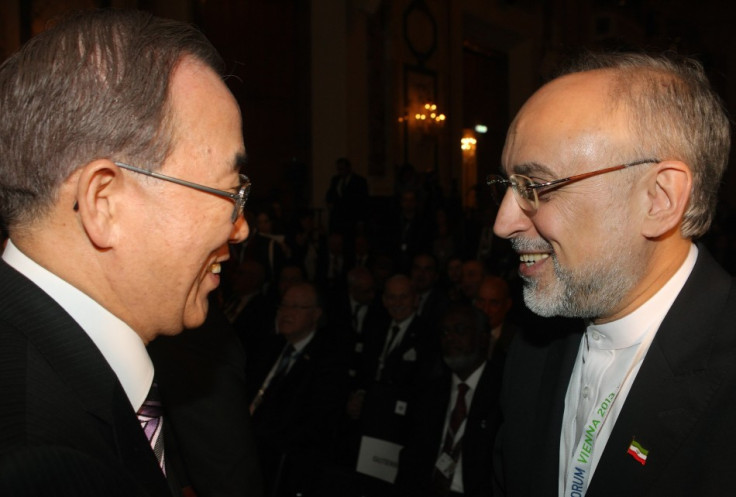Iran Agrees to Follow up Nuclear Talks with US, Europe and China
Six world powers offer Tehran sanction reduction in exchange for reduced nuclear activity

Iran has agreed to hold follow-up talks with six world powers over its nuclear programme after two days of discussions.
France, Germany, the US, China, Russia and Britain offered to lift various sanctions if Tehran promised to reduce its nuclear activity - which the West believes could culminate in the production of a bomb.
The fresh offer was made in the Kazakh city of Almaty, and Iran's decision to agree to resume negotiations is seen as a positive outcome.
After the meeting, Iran's chief nuclear negotiator Saeed Jaleeli said that the talks had been "a positive step" and the six powers tried to "get closer to our viewpoint". He added that the new offer was "more realistic" than previous plans.
Western powers are seeking an agreement before Iran's presidential election, which is likely to raise political tension in the country.
"I hope the Iranian side is looking positively on the proposal we put forward," said European Union foreign policy chief Catherine Ashton, who led the talks on behalf of the six powers.
However Ashton added: "We have to see what happens next."
Russian negotiator Sergei Ryabkov confirmed that the West had offered to ease sanctions on Iran if it stops enriching uranium to 20-percent fissile purity - a short technical step from weapons grade.
The right to produce 20-percent fuel has been reiterated by Jaleeli, but he indicated he was ready to discuss the issue, conceding that "this can be discussed in the negotiations ... in view of confidence building."
Sanctions relief included a resumption of trade in gold and precious metals and the cessation of an embargo on petrochemical products. No offer has been made on suspending oil or financial sanctions.
However, follow-up talks have always failed to produce an enduring success, according to experts. Also, Israel - currently the only country in the Middle East with nuclear weapons - has hinted that it could attack Iran's nuclear sites if diplomacy and sanctions do not halt its enrichment of uranium.
There are also signs that Iran is developing technical improvements to its nuclear programme. Sources report that a significant number of new centrifuge spinning machines have been set up at the Natanz facility.
The Daily Telegraph also published satellite images purportedly showing that Iran has activated the Arak heavy water production plant. Images showed a cloud of steam, indicating heavy water production.
However, the Arak plant has been operational since 2006 and Western governments and the International Atomic Energy Agency have held information about activity at Arak for some time. Inspectors from the Agency, however, have been unable to visit the facility since August 2011.
Iran has always claimed that its enrichment programme is aimed at civil purposes, such as increasing oil exports.
© Copyright IBTimes 2024. All rights reserved.






